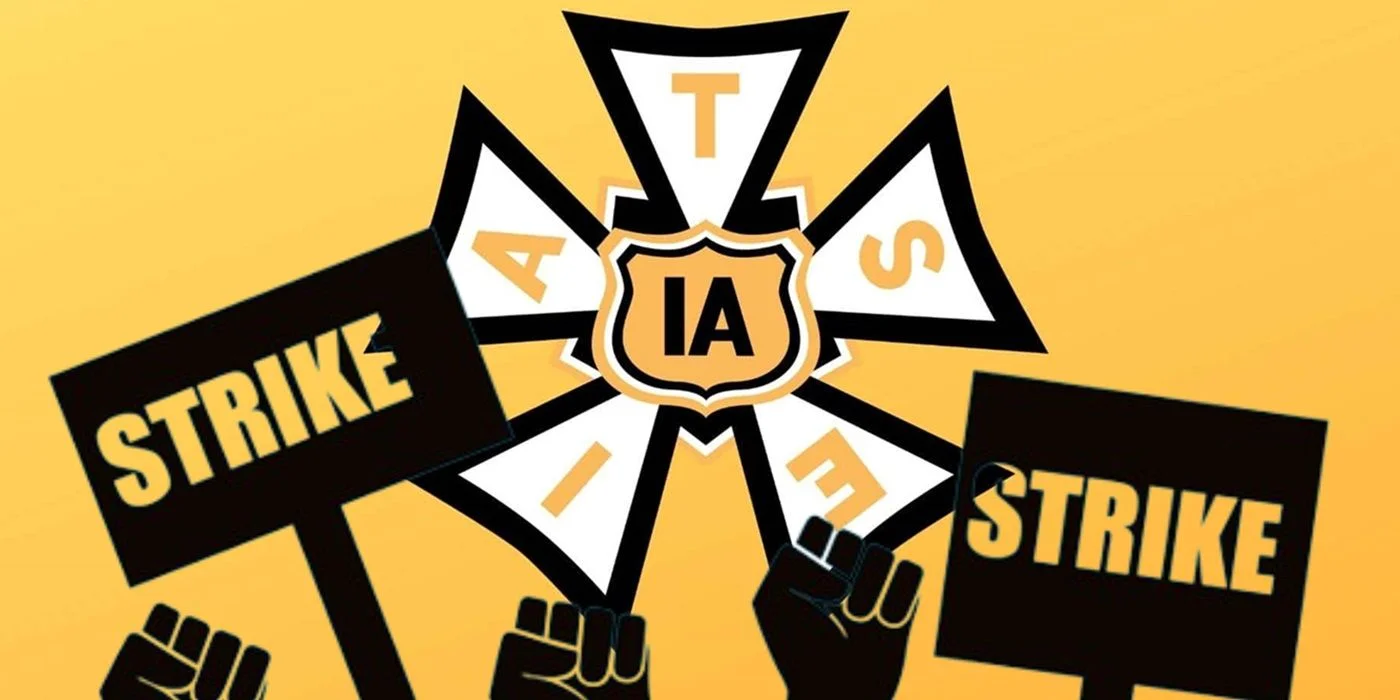More Hollywood Strikes Could Happen Soon as IATSE Enters Negotiations

Summary
- Potential strikes threaten to halt Hollywood once again as the International Alliance of Theatrical Stage Employees (IATSE) considers a strike authorization vote if labor contracts are not settled.
- Negotiations between IATSE and major Studios, including Disney, Warner Bros., and Netflix, are set to begin on March 4, with the possibility of a strike authorization vote or a ratification vote depending on the progress.
- The IATSE is determined to negotiate from a position of strength and win a contract that its members expect and deserve.
Just a few months after the successful conclusion of both the Writers Guild of America (WGA) and Screen Actors Guild-American Federation of Television and Radio Artists (SAG-AFTRA) strikes, more potential walkouts threaten to once again bring much of Hollywood to a standstill. The International Alliance of Theatrical Stage Employees (IATSE), which represents more than 168,000 workers in various arts, media, and entertainment crafts, and consists of more than 360 Local Unions, has stated that they will hold a strike authorization vote if two major labor contracts are not settled successfully before they expire on July 31.
The IATSE works “in all forms of live theater, motion picture and television production, trade shows and exhibitions, television broadcasting, and concerts as well as the equipment and construction shops,” as stated on their official site. These contract negotiations are set to begin on March 4, with IATSE’s Negotiating Committee trading proposals with the various major Studios, represented by the Alliance of Motion Picture and Television Producers (AMPTP), which will include Disney, Warner Bros. Discovery, Sony, Paramount, Apple, NBC Universal, Amazon, and Netflix.
“The Negotiating Committee is not interested in extending this agreement beyond the July 31 expiration. Depending on the status of negotiations around this time, there will either be a strike authorization vote, or a ratification vote,” the IATSE site reads.

The Strikes Are Over, But Can the Network TV Season Be Salvaged?
With production ramping up in the coming weeks, let’s look at how the remainder of the network TV season could unfold.
While the AMPTP has declined to comment, an IATSE spokesperson said (via THR) that the launch of two websites, the Basic Agreement and the Area Standards Agreement, and the hashtag #IASolidarity, “represents the latest step that IATSE has taken to ensure that all members can be fully informed of the process and contingencies surrounding our upcoming negotiations.”
The IATSE Will Go Into Negotiations ‘United and From a Position of Strength’
“Our Union is going into these negotiations UNITED and from a position of STRENGTH. We will be AGGRESSIVE at the table and do what it takes to win a contract that IATSE members expect, deserve, and ratify,” the IATSE websites state.
The tone from the IATSE is to be expected, with the negotiations due to begin so shortly after both the writers’ and actors’ guilds shutdown such large swatches of the Hollywood machine, and had a serious detrimental impact on movie theaters the world over. The organization will be fighting for similar wins seen by both the WGA and SAG-AFTRA, with the strike authorization vote being used as a bargaining tool as studios worry about productions on both the small screen and the big screen being ground to a halt.
The two newly launched websites, the Basic Agreement and the Area Standards Agreement, present a roadmap of negotiations. “Last year, the Negotiating Committee began gathering members’ input through bargaining surveys, local union meetings, town halls, digital communications, and one-on-one conversations,” both sites state under “We Are Here.”
“If no deal is reached, The Negotiating Committee may call for a strike authorization vote,” they both read should the deadline of July 31, 2024, pass.
Here’s hoping that the negotiations go as planned for the IATSE, and we can avoid further strikes so soon after last year’s industrial action.









